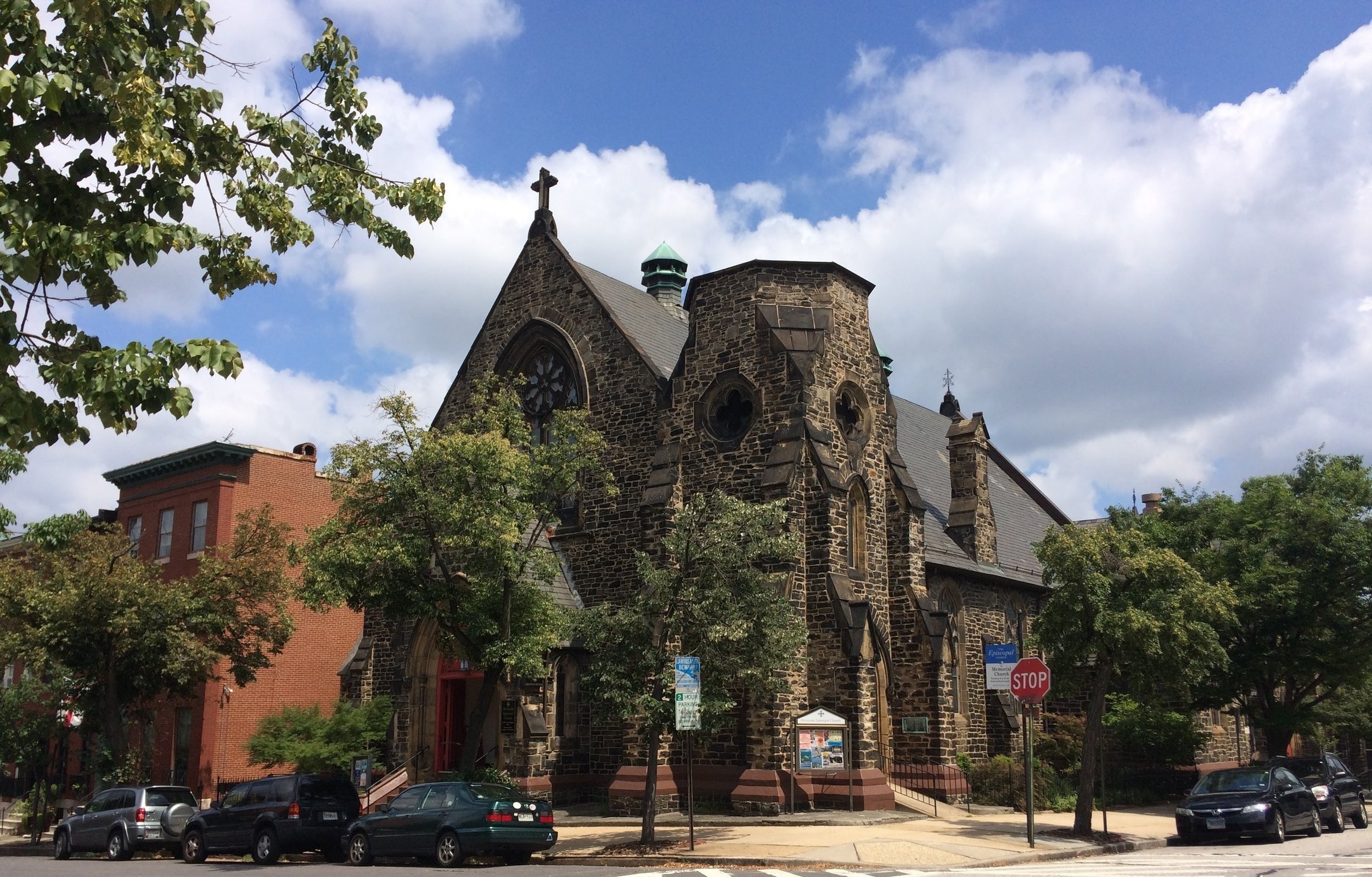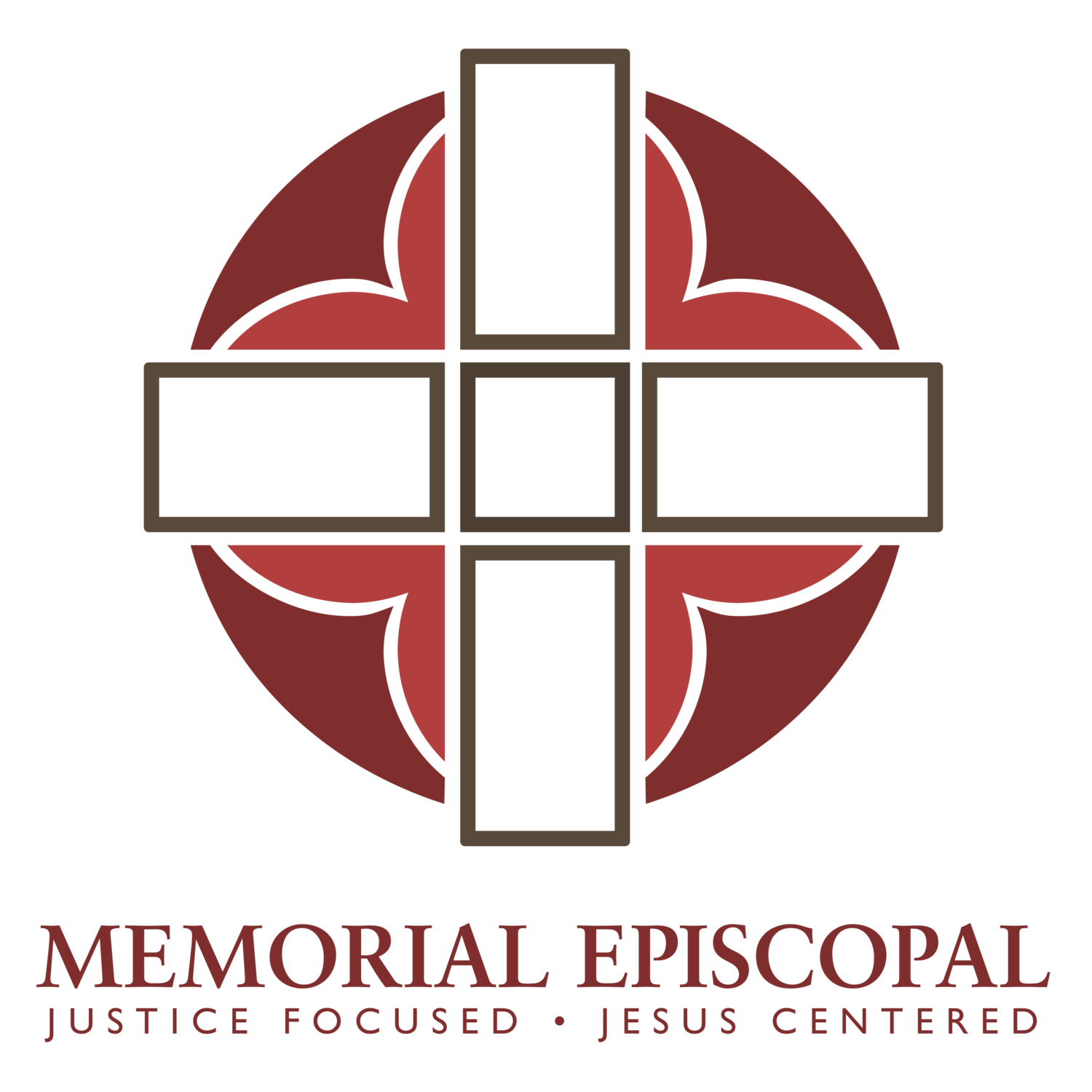
The View from Bolton Street
The View from Bolton Street
When the disciples saw him walking on the sea, they were terrified . . . and cried out in fear. But immediately Jesus spoke to them and said, “Tale heart, it is I, do not be afraid.” Matthew 14:26-27
Jesus immediately reached out his hand and caught him, saying to him, ‘You of little faith, why did you doubt?’ Matthew 14:31
Well, Jesus, it’s easy for you to say do not be afraid. You’re the one walking on water. Peter tried to come to you, but fear overcame him, and he began to sink. Jesus grabbed his hand and said: “You of little faith, why did you doubt?”
How many times have we heard that line in Scripture—do not be afraid. The most commonly repeated phrase in the entire Bible, in both the Old Testament (over 100 times) and New Testament (about 44 times), is “Fear not! or “Have no fear!” or “Do not be afraid!” or “Be not afraid!’
Everyone is afraid sometimes, about something. I have a fear of heights, snakes and other crawling things, and lately, falling. We live in a world that offers plenty of chances to fear. We can also creatively think of new things to be fearful of. So perhaps, that’s why the phrase “do not be afraid” is often repeated in Scripture. Trusting in God will counteract the effects of fear. Even though the admonition is not to be afraid, the implication that trusting is having faith in God.
This week, on August 15th, is the celebration of the Feast of the Virgin Mary. The Annunciation is the perfect story of fear that turned into faith. A young woman, a virgin, is visited by the angel Gabriel who has been sent from God. Gabriel says: “Do not be afraid, Mary, for you have found favour with God. And now, you will conceive in your womb and bear a son, and you will name him Jesus.” Not only is Mary perplexed but I believe she was also afraid. Gabriel tells her that her cousin, Elizabeth, who is advanced in age, is also with child. Gabriel says: ‘For nothing will be impossible with God.’ Then Mary said, ‘Here am I, the servant of the Lord; let it be with me according to your word.’ All her fears and doubts were erased by her faith in God.
If we don’t focus on the fear but increase our faith, then we have nothing to be afraid of. Focus on our relationship with God, focus on God’s nearness, focus on that light that burns inside of us to erase some of the darkness of the world.
Be Not Afraid (song by St. Louis Jesuits) Chorus:
Be not afraid,
I go before you always
Come follow me
And I will give you rest.
The View from Bolton Street
A Sabbatical Reflection From the Deacon
Day by day, as they spent much time together in the temple, they broke bread at home and ate their food with glad and generous hearts, praising God and having the goodwill of all the people. And day by day the Lord added to their number those who were being saved. – Acts 2:46-47
From Rev. Grey’s View from Bolton Street, June 29, 2022: The sabbatical is called: “Grains, Trains, and Automobiles” and it uses the process of Baking Bread - Mixing, Leavening, Stretching, Resting, Baking - to help us understand the hard work of rest, and to explore the role that hospitality plays in our ability to work across differences, repair relationships, and see the face of Christ in the other.
Hospitality, particularly hospitality in community will be our mantra at Memorial, for the entirety of the sabbatical. Beginning August 21st, the following celebrants/preachers, along with myself, Ken Ironside, and Carolyn Armstrong, will be joining us in the Sanctuary and Upper Parish Hall: Carol Burnside+, Stuart Wright+, Thelma Smuellen+, Joanna White+, M. Dion Thompson+, Manoj Zacharia+, Carole Douglas+. Some of these celebrants/preachers will be familiar to us and some won’t. They come from a myriad of backgrounds, cultures, identities, and preaching styles. Guess what Memorial people, we, too, come from a myriad of backgrounds, cultures, and identities. They come to us bringing their special gifts to the table. It may not be the “way” Memorial does Eucharist, but it will be the way that Memorial will pull out all the stops and welcome those who accepted the invitation to serve at the table. We shall welcome them into our community with unbridled hospitality.
Just what is community? Community is our interdependence on the space we share—air, water, roads, cities, etc. Community is also shared physical space where we interact—socialize, laugh, cry, worship, etc. Community is both possible and necessary to our human condition. The pandemic taught us just how important community is and how we rejoiced when we could come together in community. In this community, we continue to build relationships giving us more insight into each other’s stories. The bond between these relationships within these walls is strong; yet there needs to be more.
Bolton Hill is a “walkable” community. We can greet our neighbors, watch out for kids on bikes, walk around the neighborhood, “bump” into people we know. This walkable community gives us a change to interact and connect with others making this an essential component of building a society where change in community needs to happen. There is a reason why we face outward at the end of the service before dismissal. It is to take our internal community into the “walkable” community to effect change. To share the peace that God alone can give and give that peace a fighting chance.
We have made great stride in connecting with other communities through our reparations work. We can get out there and connect with others. To really get down in the weeds, we need more boots on the ground. I’m asking Memorial parishioners to seriously consider joining one of the four action teams—environment, housing, education, and criminal justice. The contact is our Justice Missioner—Anthony Francis, justice@memorialepiscopal.org. To sum up this reflections, Mahalia Jackson sung these lyrics that are so appropriate in today’s climate:
If I can help somebody as I travel alongIf I can help somebody in a word or a songIf I can help somebody from doing wrongNo, my living shall not be in vainNo, my living shall not be in vainNo, my living shall not be in vainIf I can help somebody while I'm singing this songYou know my living shall not be in vain
In closing:
Glory to God whose power, working in us, can do infinitely more than we can ask or imagine: Glory to him from generation to generation in the Church and in Christ Jesus for ever and ever. Amen. Ephesians 3:20,21
Lenten Reflection 2
Genesis 15:18—On that day the Lord made a covenant with Abram, saying, “To your descendants I give this land, from the river of Egypt to the great river, the Euphrates.”
Prayers of the People, Holy Eucharist I—Open, O Lord, the eyes of all people to behold thy gracious hand in all thy works, that, rejoicing in thy whole creation, they may honor thee with their substance, and be faithful stewards of thy bounty.
Prayers of the People, Form IV—Give us all a reverence for the earth as your own creation, that we may use its resources rightly in the service of others and to your honor and glory.
Honestly, I don’t like the word Ownership, I prefer Steward, because my sisters and brothers that is our calling.
We must always remember that all things, including ourselves, ultimately belong to God and God entrusts us with resources and the responsibility to be good stewards of God’s creation. A good example of this is the Parable of the Five Talents. The Parable of the Five Talents (Matthew 25:14-30) is not really talking about money but stewardship and responsibility. In short, we are not to waste what God has given us. We should not hide what God has given us. We are not to do nothing with what God has given us.
Each of us has God-given gifts and the things we have are blessings from God. We don’t all have the same gifts but whatever we have, God expects these gifts, these blessings to be used wisely. We have free will to choose. It is up to each of us to decide how to use these gifts to be lights that shine.
What will we do with the gifts we’ve been given? The laundry list is long. I’m reminded of a quote from Maya Angelou—“Be a rainbow in someone else’s cloud.” We will help the needy, feed the hungry, clothe the naked, grant forgiveness, love one another, etc.? Of course we will, because we are willing stewards in God’s kingdom.
I often speak about being a beacon of light to shine in the darkness of those less fortunate than us. We can be good stewards of our time, our talents, our faith, our friendships, and our lives. We can delight in creation, respect the dignity of all persons, and responsibly use the Earth’s resources.
Most important is to be good stewards of ourselves—our mind, body, and soul. If we aren’t good stewards of ourselves, then we cannot be good stewards of anyone or anything else. The Lenten period is a time to reflect on how to be good stewards of ourselves. Use these forty days for reflection, prayer, and rest.
Author: Deacon Natalie+

